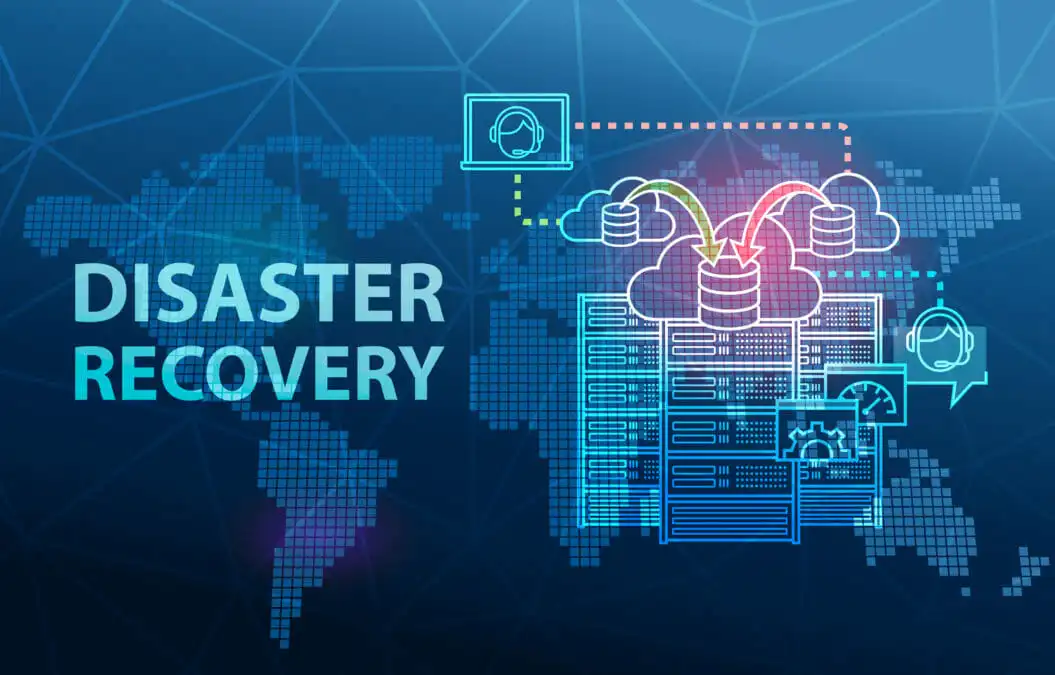
In Century City’s competitive financial sector, every second of downtime can mean millions in lost revenue and reputational damage. From private equity firms to boutique investment advisors, data security and operational continuity are critical. Yet, as cyber threats and system outages grow more complex, many institutions still lack a comprehensive Disaster Recovery (DR) Plan) – a roadmap that ensures rapid recovery after disruption. Effective disaster recovery isn’t just about backing up files – it’s about resilience, regulatory compliance and client trust.
Why Disaster Recovery Planning Is Critical for Financial Institutions
Financial institutions in Century City handle vast amounts of sensitive data: client portfolios, transaction histories and personal financial information. A single system failure – whether caused by ransomware, natural disaster, or hardware malfunction – can disrupt operations and expose firms to severe regulatory and financial consequences.
According to the Federal Financial Institutions Examination Council (FFIEC), having a well-documented disaster recovery strategy is essential for maintaining compliance with federal cybersecurity and data integrity standards.
Without a plan in place, even minor outages can result in:
-
Service interruptions that impact clients
-
Permanent data loss
-
Reputational damage
-
Costly penalties for non-compliance
A proactive disaster recovery strategy minimizes downtime, secures data and ensures business continuity – even during unexpected events.
The Financial Impact of IT Disruptions
Without a solid DR strategy, financial institutions face serious risks:
-
Revenue Loss: Interrupted transactions can lead to financial discrepancies.
-
Data Breaches: Sensitive client data may be exposed if systems aren’t properly secured.
-
Compliance Violations: Frameworks such as FINRA and SEC require documented recovery measures.
-
Reputational Damage: Trust is the foundation of finance – once lost, it’s difficult to rebuild.
To mitigate these risks, Century City firms need a structured disaster recovery plan addressing every critical component of operations.
Core Elements of Disaster Recovery Planning for Century City Financial Institutions
1. Risk Assessment and Business Impact Analysis (BIA)
Every institution’s risks are unique. A risk assessment identifies the most likely threats – from ransomware attacks to power outages – while a BIA evaluates how those disruptions affect trading, client communication and compliance operations.
Best Practice: Update your risk assessment annually and after major system or staff changes.
2. Data Backup and Redundancy
Financial data must be backed up frequently and stored securely in multiple locations. Modern DR solutions use cloud replication to ensure availability even if on-premise systems fail.
Pro Tip: Follow the “3-2-1” backup rule – keep three copies of your data, on two types of media, with one stored offsite in a secure cloud environment such as Microsoft Azure Backup or AWS Disaster Recovery.
3. Cybersecurity and Regulatory Compliance
Disaster recovery planning and cybersecurity go hand in hand. Financial firms must meet strict regulations like GLBA and SOX, which require data integrity and access controls even during recovery.
Tip: Align your DR plan with FFIEC guidance and ensure encryption is applied to both backups and live systems.
4. Testing and Continuous Improvement
A DR plan is only effective if it works in practice. Regular testing – through simulations or tabletop exercises – ensures that systems, employees and vendors can respond efficiently.
Recommendation: Conduct quarterly disaster recovery tests and document each outcome to identify bottlenecks and optimize response times.
5. Communication and Continuity Protocols
Clear communication during a crisis is critical. Establish contact hierarchies and tools that allow your team to coordinate effectively if systems are down.
Action Step: Maintain a list of emergency contacts, vendor hotlines and client notification templates to ensure rapid response and transparency.

The Role of Managed IT Partners in Disaster Recovery
Partnering with a local managed IT provider gives Century City financial firms access to experts specializing in compliance, security and infrastructure resilience. A trusted provider like TechCare Computers can:
-
Design customized DR strategies aligned with financial workflows
-
Implement secure cloud backup and real-time replication
-
Monitor systems 24/7 for early warning signs
-
Conduct compliance audits and recovery testing
Insight: Outsourcing disaster recovery not only improves recovery speed but also reduces internal IT overhead, allowing teams to focus on client service and portfolio management.
Real-World Example: Century City Investment Firm
A boutique investment firm in Century City faced recurring outages due to outdated backup methods. After implementing a hybrid cloud DR solution with TechCare Computers, the firm achieved:
-
99.9% uptime
-
Recovery time reduced from 10 hours to 30 minutes
-
Full compliance with SEC disaster recovery guidelines
The result: uninterrupted client service, improved operational confidence and regulatory alignment.

Diverse Team of Research Engineers Working in a high Tech Laboratory on a High Profile Start-up. Team Consists of Black and Caucasian Young Women and White Male.
Preparing for the Future of Financial IT Resilience
Disaster recovery planning is no longer optional – it’s a strategic necessity. As cyber threats evolve and clients demand transparency, firms that invest in resilient infrastructure position themselves as trusted leaders in data security and service continuity.
Partner with TechCare Computers
At TechCare Computers, we help Century City financial institutions strengthen business continuity with tailored disaster recovery solutions:
-
Cloud and on-premise backup design
-
Data encryption and compliance monitoring
-
24/7 disaster recovery support
-
Continuous testing and optimization
Protect your firm’s data, clients and reputation. Contact TechCare Computers today to implement a disaster recovery strategy built for resilience, compliance and peace of mind.




